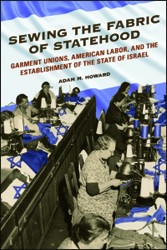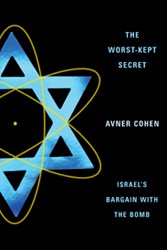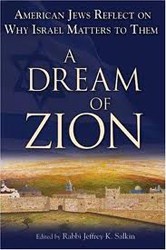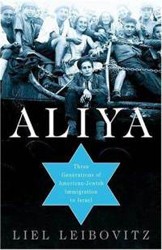Had Harry S. Truman not become America’s accidental president, would the State of Israel have been created? This is the central question in the compelling, comprehensive history of Israel’s birth, A Safe Haven: Harry Truman and the Founding of Israel. Authors Allis and Ronald Radosh offer a convincing defense of Truman, who was “guided by humanitarian and moral considerations,” and as a politician, determined that recognizing Israel was “in the national interest of the United States.”
The modern story of Israel begins with Franklin Delano Roosevelt. His effective leadership in World War II compromised his health, and suddenly, in 1945, President Roosevelt was dead. By late 1944, one of the final years of the war, Roosevelt and the Allies faced a complex challenge. European Jewry, the displaced, surviving victims of the Nazis, invoked both sympathy and discomfort, and Roosevelt attempted to balance humanitarian concerns against an effort to protect American interests in the oil-rich Arab states. Despite having run for president on a Democratic Party platform promising the establishment of a Jewish commonwealth in Palestine, Roosevelt offered ambiguous if not contradictory promises to Ibn Saud of Arabia and to Congressional leaders. His vacillation led to unclear goals and confusing national objectives. When Harry S. Truman suddenly became president, a position he had never intended to assume, he discovered he “would find it impossible to live with FDR’s obfuscations.”
Unclear about Roosevelt’s commitments regarding Palestine, Truman became president having been excluded from many of his predecessor’s foreign policy decisions, including commitments regarding Palestine. Truman, a Baptist, maintained that Jews were destined to return to Judea, and he was on record as early as May, 1939 as supporting the settlement of Jewish immigrants in Palestine. Contrasting Truman’s unambiguous advocacy for a Jewish homeland with Roosevelt’s private vacillations, it became likely that Truman’s sympathies would lead to a consistent national policy supportive of a Jewish Commonwealth in Palestine, although both Roosevelt and Truman shared the desire to avoid using America’s military force in Palestine at all costs.
The authors recount the political strategies and intrigues which ensued during the post-war years, as Truman attempted to exercise his personal persuasive power on behalf of American policy in a world that was rapidly changing. He was opposed by the British, who, led by Ernest Bevin, undermined attempts to arrive at a mediated settlement to the Palestine issue. They were motivated perhaps by anti-Semitism, or Britain’s dependence on oil, but certainly from reluctance to lose a final vestige of imperialistic control. Yet surprisingly, Truman was also undermined by the U.S. State Department, which succumbed to Arab demands in contravention to the president’s stated foreign policy initiatives. Truman’s courage and political skill at this time form an important part of the story of Israel’s birth, and a mere ten minutes after Israel declared its independence, President Truman himself announced the United States’ recognition of the new nation.
The authors’ admiration for Truman is evident, but there are many lesser-known heroes in this history, notably Eddie Jacobson, Truman’s former haberdashery partner and White House confidant. The richly textured portraits of these diverse contributors add to the delight of reading this book. The Radoshes conclude that if Truman had not become president when he did, Israel might not have been created, but even if their speculation is wrong, it is clear that it was Truman’s resolute leadership, and his good heart, and his ability to inspire like-minded strategists that overcame resistance to a Jewish homeland.





